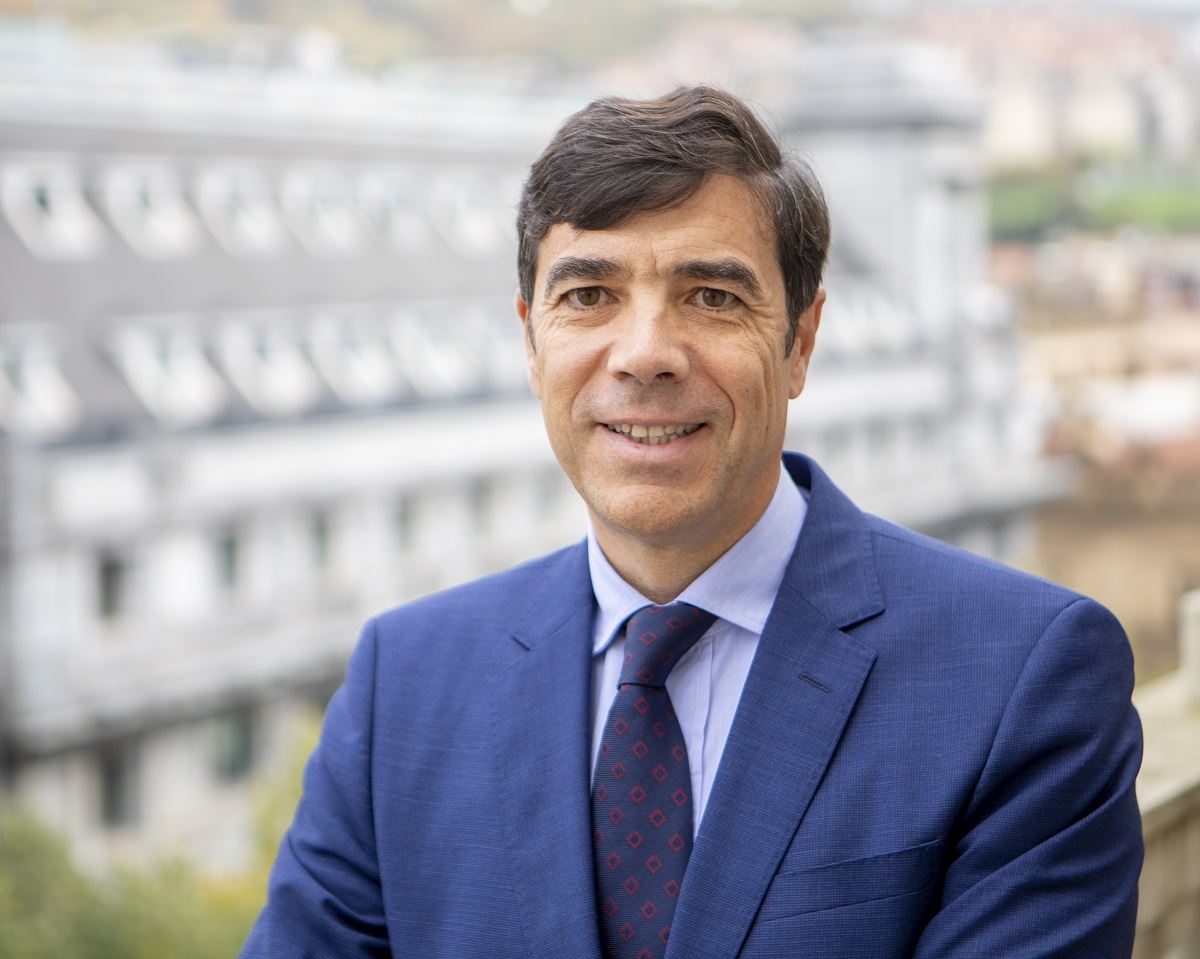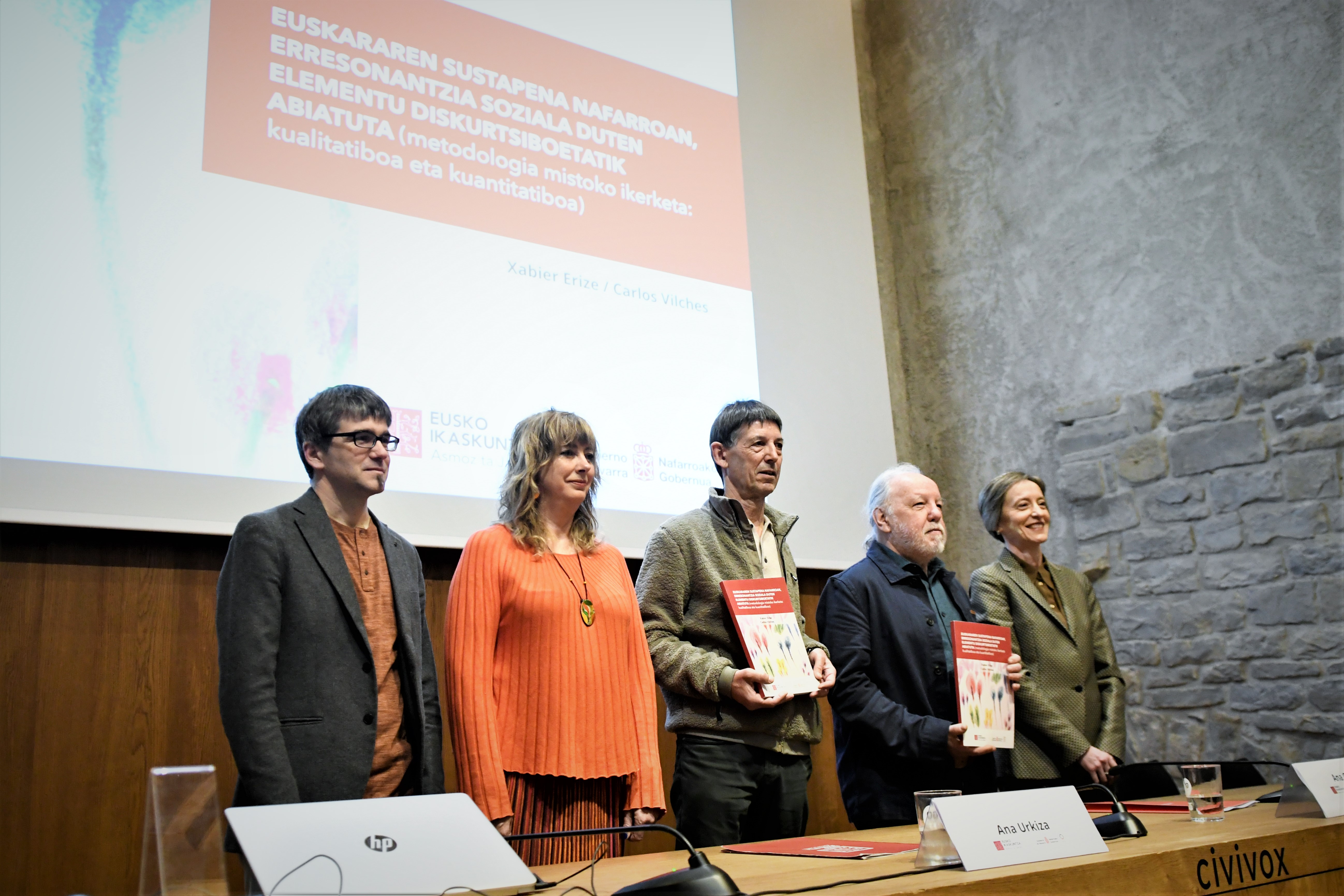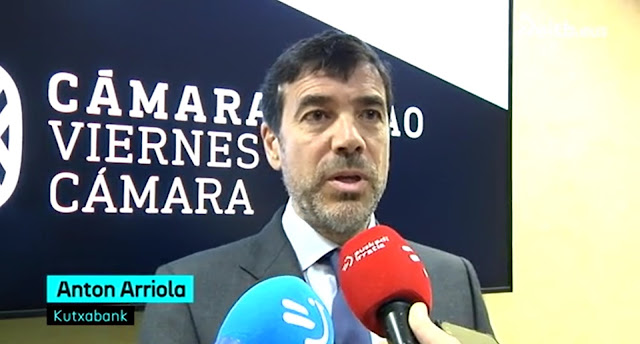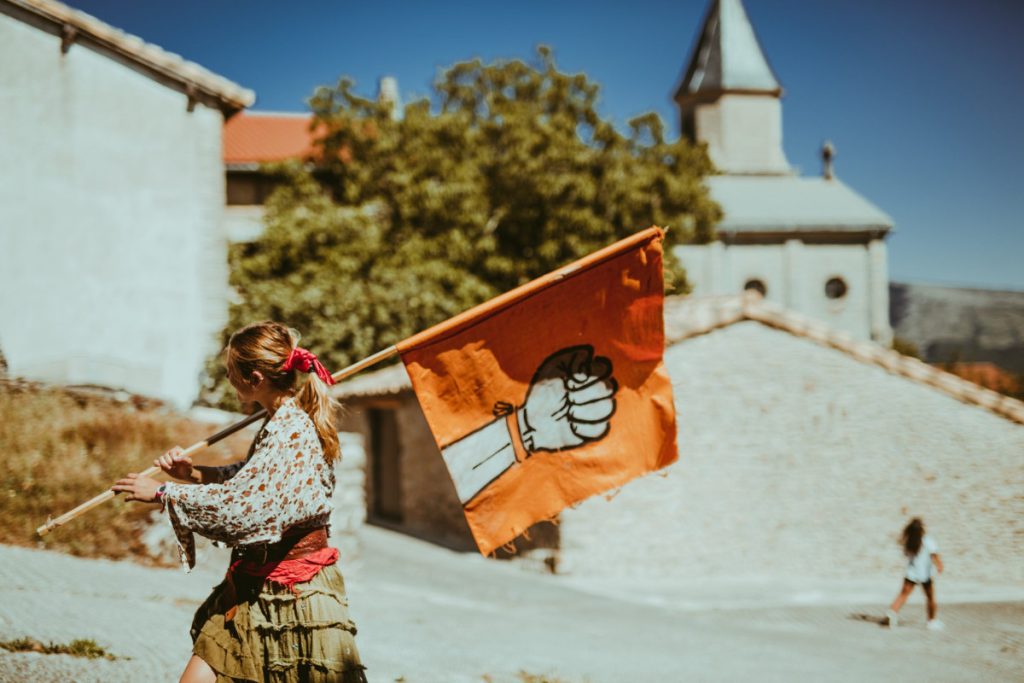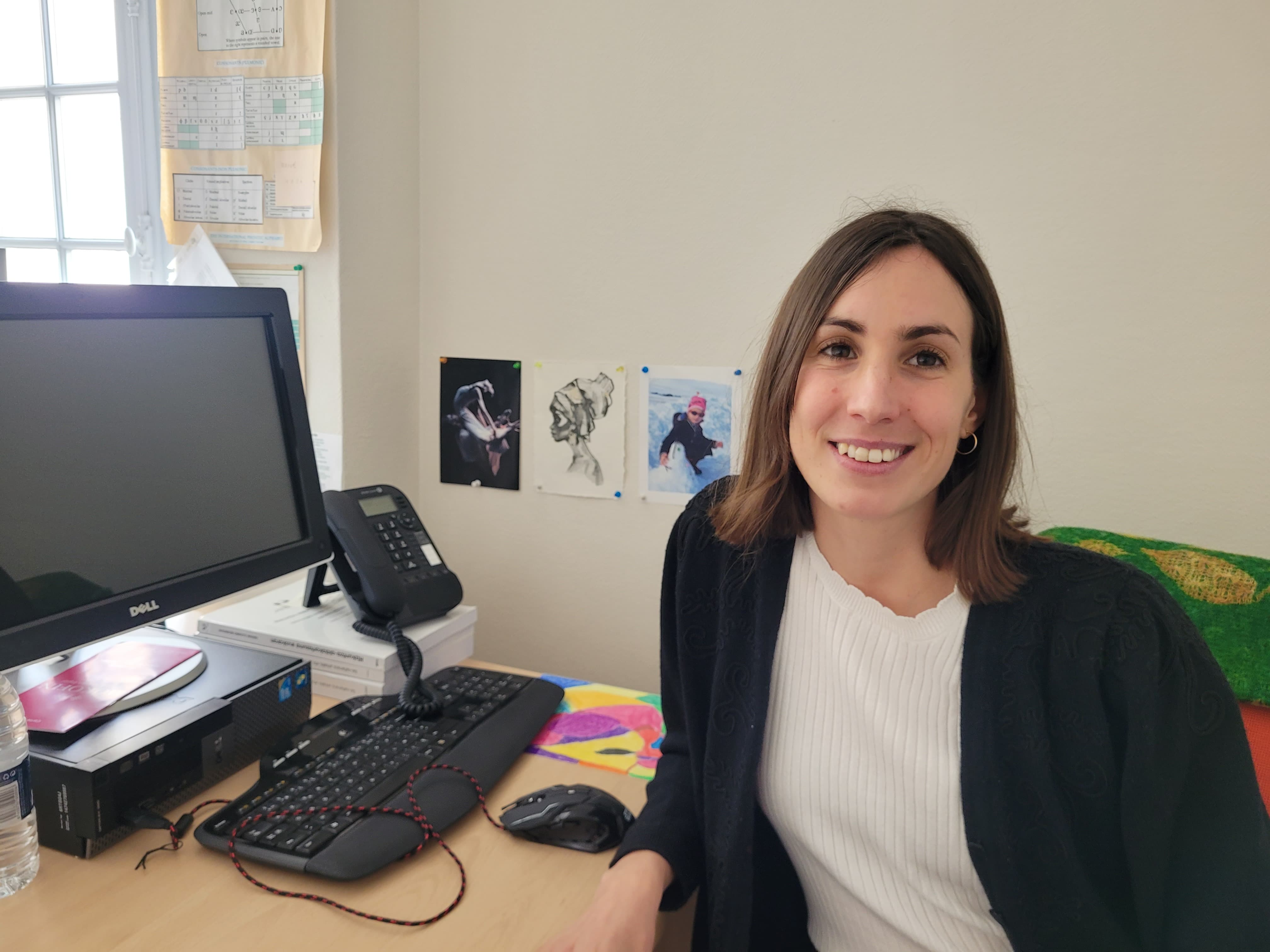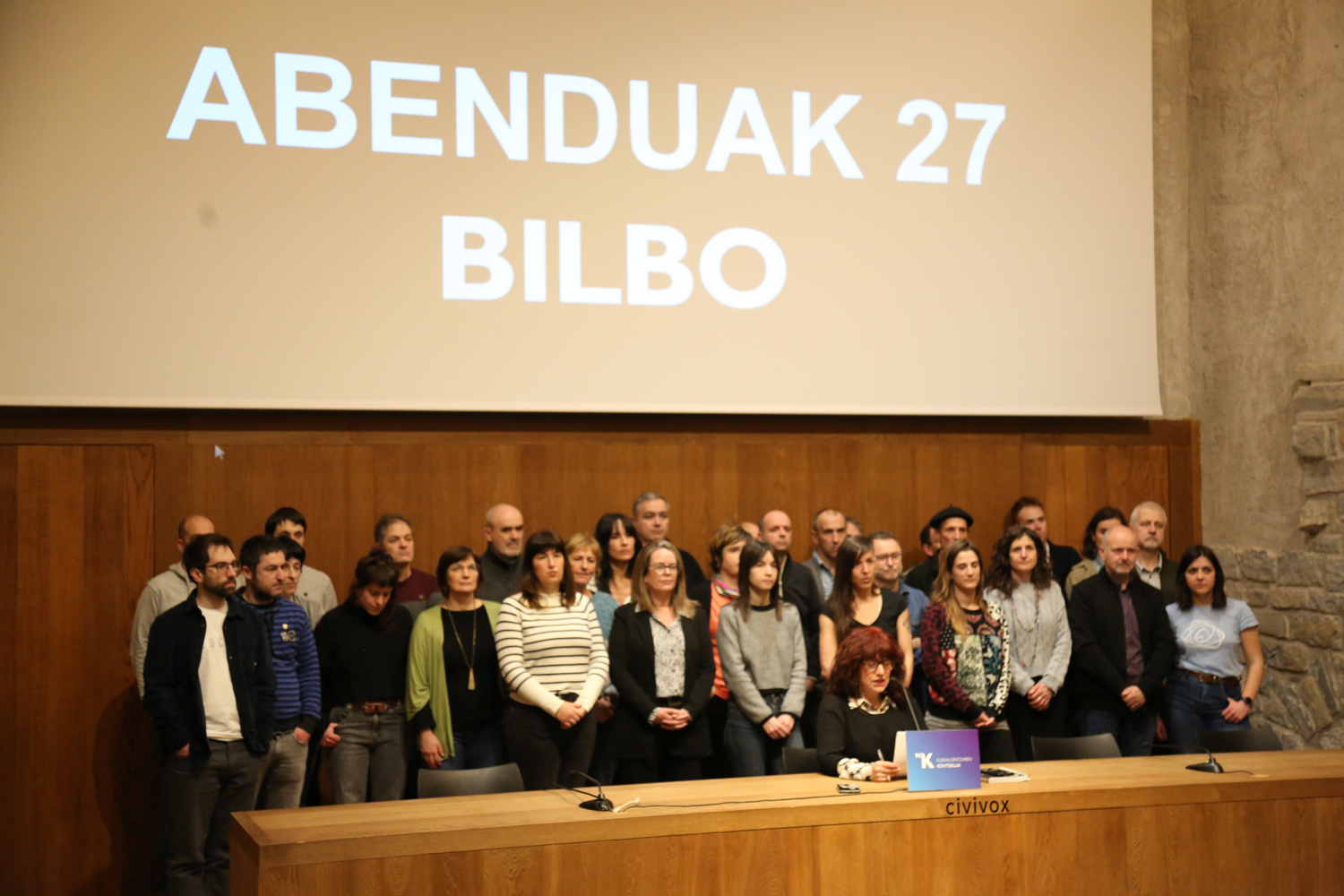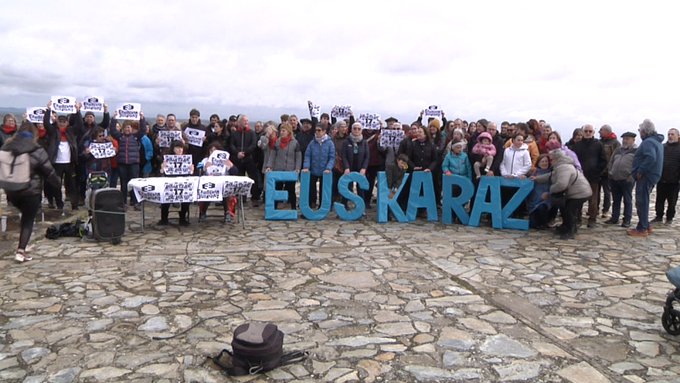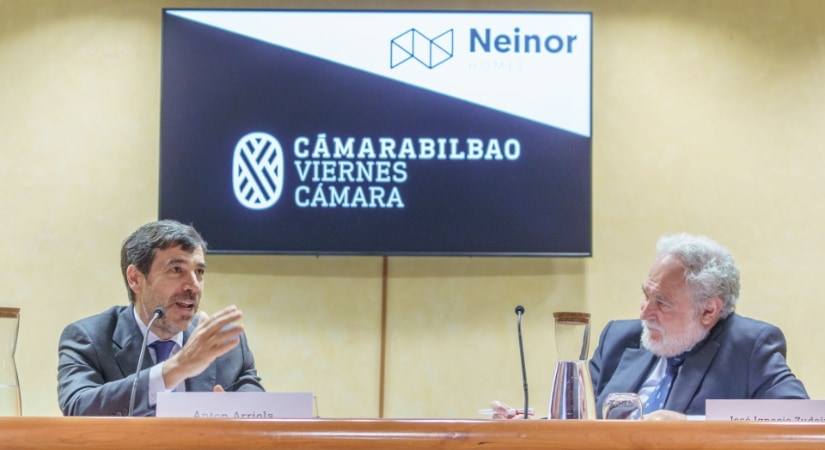How to overcome the "gu-hura" discourse with the Basque language as a basic language
- Petra Elser gave a talk at Hernani. He talked about the area of immigrants and the Basques. It ignores the discourse “we” and “them” and represents the integration of both spheres into a strong Basque community, with the Basque being the linguistic axis. Elser, of German origin, has been in the Basque Country for fifteen years. She is the director of Banaiz Bagara, an association that works to attract foreigners to the Basque world, using the working world as a bridge.
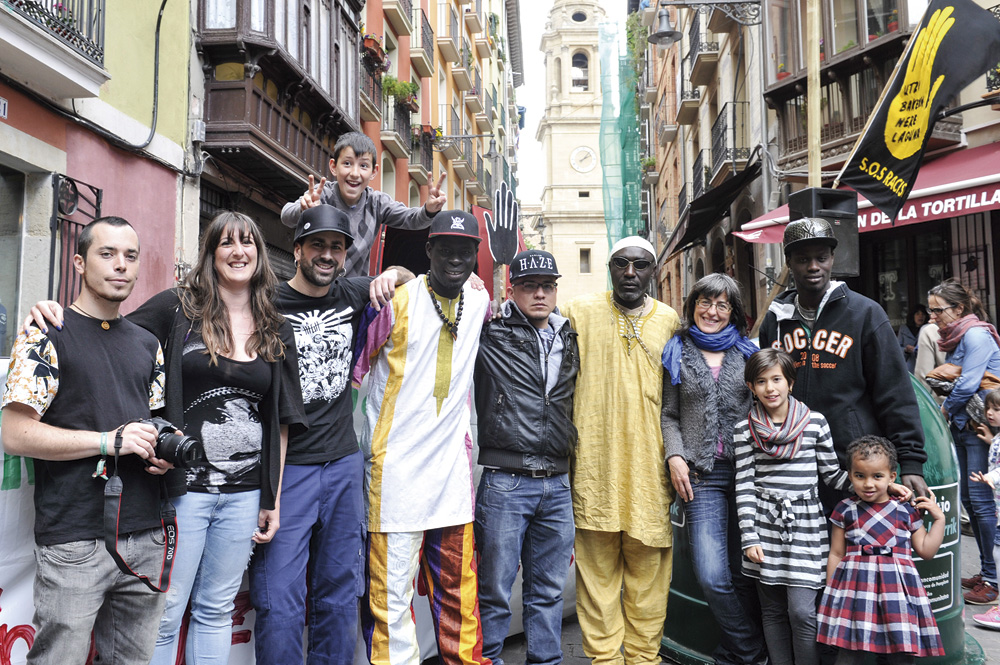
The talk by Petra Elser has been posted on Youtube by the organizing association of the Euskara Ari Du initiative of Hernani. We have brought here a summary of the conference.
A common space, that is, a space where we all come together.
I will speak of three areas: the common area, the Basques and the immigrants. Let's start with the first one. I will say three things as a starting point. One: It can be changed even if you're 60 or 80 years old. We can change our whole lives. Two: Society can also change. Three: We have to think about how to build an Euskaldun community. We have to make a representation of the society we want. How do we want to be in five years' time? May the Basque community not be a small community within society surrounded by a large community in Spanish.
The field of Basques
We have to take account of the following characteristics in relation to the Basque area.
• It is said that it is a closed community, it has been closed to protect theirs, it is usual to use “us” and “them”. In my work I hear a lot: they get together a lot, they wear a scarf, they always go to the mosque... People speak from fear and strangeness, from the distancia.Aunque “immigrants” and “autochthonous” live in the same street, we place them in the center of “us” and on the periphery.
• Foreigners are applauded for speaking in Basque: “Mohamed, born in Casablanca, speaks Basque very well.” We would not say: “Despite being born in Casablanca, Mohamed does well in Spanish,” right? It is normal for it to be done in Spanish, not in Basque. We treat it as a special language.
• Children will learn. What about your parents? Will they live between 40 and 60 years or older and they won't learn? It has no logic. For example, South American women are leaving their children in the country of origin, but they may be working here for ten years. Are they not going to learn Basque?
• Language learning is given to academia, Euskaltegis. You'll learn somewhere else than on the street, and then when you come to me, we'll talk in Basque. Society is not responsible for the learning process, helps to speak in Basque, speaks slowly ... No, experts will teach you the language.
Migrant Zone
We refer to those born in the years 1960-1970, as well as those who come today. I will make one point. They come with a lot of psychological weight, they come from abroad, frightened, distressed, with many needs... In this respect, this field cannot be equated with that of the Euskaldunes. Having said that, it should be emphasized that whoever speaks Spanish with those who want to live in Basque renounces the linguistic rights of the other, is employed by the administration, doctor or the one who asked him the time on the street. The newcomer may not know that there are two languages spoken here, but once that is known, there can be many reasons not to speak in Basque. However, language rights are being denied.
Some have a speech in favor of the Basque Country throughout their lives, without changing anything. People know what is politically correct and say: “I would like to know!”, “What a pity, I don’t know!” There are also others: “I am not interested in the Basque Country”, “tell me in Spanish”...
“Those here don’t learn.” This discourse is held by both immigrants and others. If this is true, the question is: Who is from here? If we bring together 100 Senegalese who know Euskera and make days about the conditions of street vendors, who is here? They've come from Senegal and they speak in Basque.
And to end this section, I think that the Basques and the Basques of the outside have responsabilidad.Las people who have a certain level of Euskera, the ones I know, are the couples of the Basques. These couples can play a very important role in locating themselves in what we have called a common space.
Islam is also in Basque.
And now how are we going to make the changes so that we join each other in the common space? We will both have to make the effort, if the “gu-hura” discourse is not maintained. For example, some have made the effort, gone to Euskaltegi and learned Euskera. The Pakistanis or Moroccans speak in Basque in sports or on the street, but their friends have not changed, it is maintained “you there and I here”. The president of the Tolosa Mosque told me that he believed that Basque learning would open the doors to him, but that it had not happened to him.
Therefore, what are my proposals to overcome the “gu-hura” discourse? I think it is very important to open a semi-public-private space. I'm talking about meals and dinners, trips to the mountain, meetings and excursions from school parents, neighborhood parties. We would have to make an effort to invite these kinds of spaces to those coming from other countries. I don't mean the one-day acts, that is, the Africans in the neighborhood play the drum at parties. These Africans may have to attend the meetings to organize the neighborhood parties and attend the meeting dinner.
It is important to make foreigners visible, especially Basque foreigners. Don't talk about Euskera or migration, talk about other things. The Basque has to understand that Islam is also in Basque, and if the immigrant sees that one of his areas is in Basque, it will be easier to imagine the common area in which we will all speak in Basque. You will not think: “These are Basque and in our field we speak again in Spanish.”
We have to make the value of the linguistic level visible. It must be emphasized that the server or caregiver of the elderly knows how to say four things in Basque. Some are learning Euskera on the street without going to the Euskaltegi and that is a tremendous achievement.
I learned in Catalonia that the peoples of Europe will never be white again, they will be of all colors and backgrounds. Everyone will bring their language and use it at home. It is about the language that is going to bring us all together being the Basque language.
Gozamen aparta bezain deskribatzeko zaila dakar, norbaiten hitzak irakurri edo entzun ostean, zera pentsatzeak: “Horixe zen neu aurreko hartan azaltzen saiatu nintzena!”. Idazlea eta itzultzailea da María Reimóndez, eta galegoz aritzen da, hizkuntza... [+]
From linguistics or glotophobia and, of course, hatred against Basque, we have often seen our Basque become the dandruff of all sticks. Last of all, the president of Kutxabank, Anton Arriola, has been shaking our language and giving us galantas.The President of Kutxabank,
... [+]
Don't make a fuss, don't confront, don't victimize... and obey. As oppressed subjects, in this case as Basques, we talk, how many times have we had to listen to them? Ironically, two years ago, at the Euskalale Independentiston Meeting, Esne Arzallus said: "We have arrived here,... [+]
Euskal hizkuntzalaritza esperimentaleko katedra berria estreinatu dute Baionako fakultatean.
Bilbon eginiko aurkezpenean iragarri dute ekitaldia, euskarari "arnas berri bat emateko eta behar duen indarraldia gorpuzten hasteko" lehen urratsa izango dela nabarmenduta. Euskaltzale guztiei, baina, oro har, "justizia sozialean eta gizarte kohesioan aurre... [+]
Euskal Herrian Euskarazek manifestazioa deitu du apirilaren 6rako, 11n EHEko bi kide epaituko dituztelako. Hiriburuetatik autobusak antolatzen ari dira. Bi helburu bete nahi dituzte, batetik, epaituak izango diren bi kideei babesa erakustea, eta bestetik, euskararentzat justizia... [+]
Anton Txekhov, Raymond Carver eta Alice Munroren ipuingintzari buruzko mahai-ingurua egin dute Iker Sancho, Harkaitz Cano eta Isabel Etxeberria idazle eta itzultzaileek, Ignacio Aldecoa zenaren ipuin literarioaren jaialdian, Gasteizen. Beñat Sarasolak gidatuta, autore... [+]
Euskaraldiaren hamaikakoa aurkeztu dute Nafarroan: Julio Soto bertsolaria, Edurne Pena aktorea, Julen Goldarazena musikaria (Flakofonki), Claudia Rodriguez Goxuan Saltsan taldeko abeslaria, Eneko Garcia (Albina Stardust), Yasmine Khris Maansri itzultzaile eta kazetaria,... [+]
Azken hamarkadetan euskararen biziberritzeak duen erronka handienetakoa, euskararen ezagutzaren unibertsalizazioarekin batera, erabilerarena da. Askotan, gazteen euskararen erabileran jarri ohi dugu fokua, baita euskararen erabilerak izan duen eta izan dezakeen bilakaeraren... [+]
Prentsaurrekoan, maiatzaren 17an ospatuko duten Erriberako Euskararen Egunaren inguruko argibideak eman dituzte. Ume, gazte zein helduentzat zuzendua izango da. Ekimena, Erriberan egiten diren ekimenetan indarrak biltzeko eta euskararen normalizazioaren alde saretzeko... [+]
"Poloniar bat etortzen bada eta bost urte pasako baditu proiektu batean, joder agian ez zaio egoki irudituko seme-alabek euskaraz ikastea, ezta?", bankuko lehendakari Anton Arriolak adierazi duenez. Euskalgintzako eragileek gogor kritikatu dute eta esandakoa... [+]










